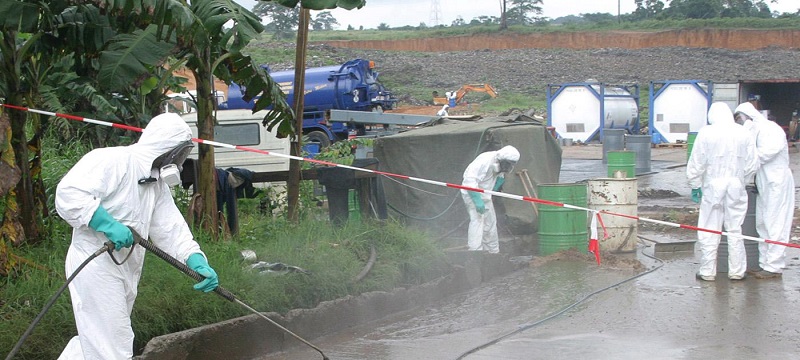The third conference of the parties (COP3) to the Bamako Convention on Friday, February 14, 2020 adopted a set of decisions reaffirming the parties’ commitment to strengthen the convention in order to prevent African countries from receiving unwanted hazardous waste in their territories as well as promoting sound management of chemicals and waste produced within the continent.

Parties reaffirmed their commitment to take concrete actions to implement decisions adopted at the first and second Bamako convention cops. they also agreed on a common scale to enhance their financial contributions to the convention. parties further called upon African states who have not yet ratified the convention to do so.
The strict standards related to the collection, treatment and disposal of municipal and industrial waste in developed countries have resulted in the illegal trafficking and export of hazardous waste to Africa for cheap disposal, often without any treatment.
The Bamako Convention prohibits the dumping or incinerating of hazardous waste in inland water and oceans, promotes the control of transboundary movement of hazardous waste within Africa and seeks to ensure that waste disposal is conducted in an environmentally sound manner.
“African countries are facing an increasing exposure to chemicals due to the growth in world trade, changes in production patterns and the relocation of chemical production from developed to developing countries. human health is closely linked to the state of the environment,” said Arlette Soudan-Nonault, Minister of Tourism and the Environment of the Republic of the Congo and the incoming president of the Bamako Convention.
“With the commitment and concrete actions of each and every one, i am sure that we will be able to meet the challenge of implementing the Bamako Convention,” she added.
Addressing parties at the high-level segment via video message, Inger Andersen, executive director of the UN Environment Programme (UNEP), said regional cooperation is one of the most powerful tools at our disposal in the face of the global climate emergency.
“We are in a critical year and a critical decade for our collective future. in this super year for nature, in this decade of action for the SDGs, we have a real opportunity to reverse the degradation of our ecosystem and biodiversity, and addressing the challenge of hazardous waste and chemicals is part of the big solution,” she added.
Parties also agreed to reinforce collaboration and create more synergies between the Bamako Convention and the related Basel, Rotterdam and Stockholm Conventions.
“In view of similar challenges faced by African countries it is fit to explore how to further explore synergies between Bamako Convention and Basel, Rotterdam and Stockholm Conventions, especially with regards to achieving the sustainable development goals,” said Rolph Payet, Executive Secretary of the Basel, Rotterdam and Stockholm Conventions.
The conference also acknowledged the updated list of hazardous substances and encouraged parties to use the list in their national implementation plan of Bamako Convention.
The Republic of the Congo takes over from the Republic of Côte d’Ivoire and will hold the functions of the presidency for the next two years. the Bureau of the Convention includes the Republic of the Congo (president), Rwanda (1st vice president), Egypt (2nd vice president), Niger (3rd vice president) and Zimbabwe as rapporteur.
Established in 1991, the Bamako Convention on the ban of the import into Africa and the control of transboundary movement and management of hazardous wastes within Africa came into force in 1998. Twenty-nine of 54 African countries have ratified the convention.
